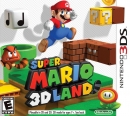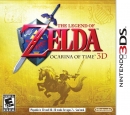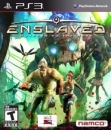zero129 said:
Sony did try partnering with Sega after the Nintendo deal didnt work out. But like i said it didnt even make it past the board of directors at Sega. Sony itself didnt want to make a console or get into gaming as they seen it as a toy and for kids. It was Ken who went behind their backs at first to make the Sound chip for the super Nintendo and convinced Sony that gaming was an emerging market. Sony pretty much agreed as long as they could partner with one of the established companies being Nintendo first when that didnt work they went to Sega but when that didnt work for them and being Japanese company they probably felt embarrassed after it (Even more so with Nintendo's announcement and people expecting something from Sony) and then investing into it Ken got the go ahead to make the playstation without needing Nintendo or Sega. Sony was a billion dollar company compared to Nintendo and Sega, They had Movie Studios a record label, making electronics etc. They where able to use all that money to make Playstation a success by lower license fees, paying devs to develop for playstation, massive tv and radio and newspaper adverts. Back then the was no chance Sega or Nintendo could compete with them on the same scale, Sega tried and failed since Sony was targeting the same userbase sega had and they where releasing their nextgen console before Nintendo so thats why Sony undercut them by €100. Nintendo failed that gen too since playstation got so many of the devs and publishers that used to make games for Nintendo consoles to pretty much just work with Sony. Only reason Nintendo survived is they always made their consoles at a profit. and in the end Nintendo ended up finding a new stratagy with the Wii and now the Switch. Some guys working at MS (Just like with Ken) seen the video game market as the future and thought Ms should get in on it. Ms didnt really want part of the console market. Them small few guys working at Ms really wanting to make a console went and convinced bill gates that the Playstation 2 could eat into the PC market as they where already on the way to taking over the living room (Something bill gates also wanted with media center PC's he wanted windows to be the center of the house, bill gates ended up giving them the go ahead to see if they could find a partner to work with on the hardware and they would make the OS. Remember Ms at first wanted other hardware makers to make the xbox. When this didnt work out the guys went and worked on their own hardware trowing together some pc parts and making it work like a console and the xbox was born. Sure thats just the gist of it and the is more to the story. But just like Sony thought of gaming consoles as a toy and didnt want in on the market until ken convinced them is not much different then how Ms didnt want in on the market until some guys working there convinced them. So just like MS having so much money today that Sony fans complain about being able to use was no different then when Sony entered the market back in the 90's. Sony was the multi billion dollar tech giant entering the console market just like Ms was when they entered compared to Sony. |
So you're telling me that Nin figured out Sony was looking to get more into the games market, shocker, and because they were a massive company and could become serious competition, that after Nin poorly told Sony to kick rocks, Sega didn't even bother? What was Sega thinking? Why not partner with Sony knowing they were willing to compete and would target you if you wronged them in a partnership?
Another question to ask, was if Sony was so big and powerful, why didn't they just do their own thing from the start? Same reason MS tried to partner or acquire?
Ken saw a bright future in gaming, and was right. He was Super correct, considering how important PS is to Sony. DX MS employees simply wanted to get more into gaming, and the excuse used to get in was PS might cut into MS business and cost them billions if not tens of billions in the future. MS didn't care about gaming, they cared about protecting their PC OS profits. Now that gaming is becoming a big thing, MS doesn't just want a slice, they want it all to themselves. You don't spend the kind of money they have on hardware and acquisitions, along with insane subsidies to just take a piece of the pie.
Sony and MS were not the same in terms of entering consoles.
Last edited by ConservagameR - on 21 January 2023





























































